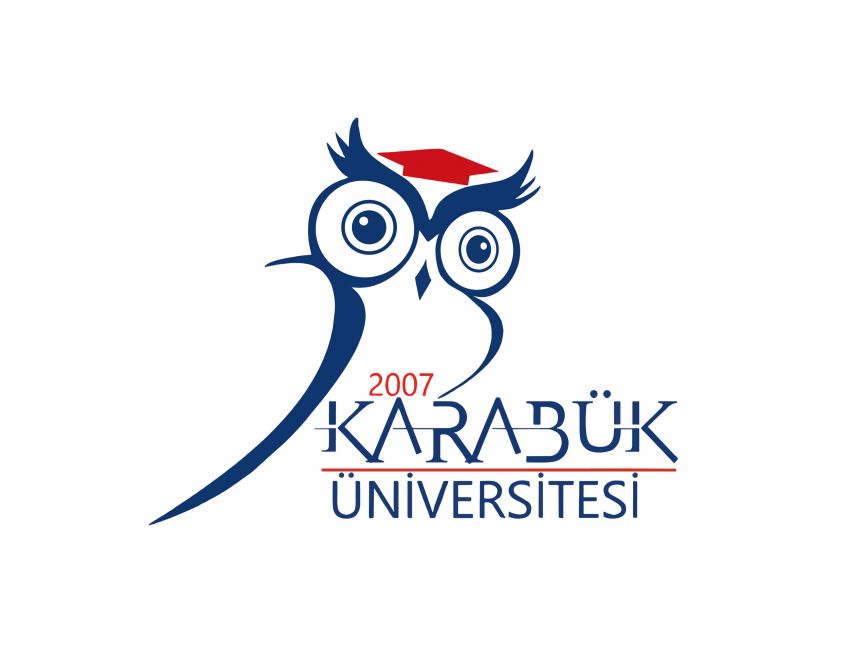Railway Systems Electrical and Electronics
Overview
<!-- wp:paragraph --> <p><strong>Railway Systems Electrical and Electronics Program at Karabük University: Affordable, World-Class Education in Modern Railway Technology</strong></p> <!-- /wp:paragraph --> <!-- wp:paragraph --> <p>The Railway Systems Electrical and Electronics program at Karabük University provides specialized education in the design, operation, and maintenance of electrical and electronic systems used in railway transportation. With an emphasis on modern technology and sustainable practices, this program prepares students to meet the growing demands of the global railway industry. As a public university with affordable tuition fees, Karabük University offers students the opportunity to gain both theoretical knowledge and hands-on experience in one of the most vital and evolving sectors of transportation. The program combines a deep understanding of electrical and electronics engineering with specific applications in railway systems, ensuring students are ready to work on the cutting-edge technologies that power the railway networks of the future.</p> <!-- /wp:paragraph --> <!-- wp:paragraph --> <p><strong>Program Mission and Vision</strong></p> <!-- /wp:paragraph --> <!-- wp:paragraph --> <p>The mission of the Railway Systems Electrical and Electronics program is to train skilled engineers who can contribute to the development and maintenance of advanced electrical and electronic systems in railway transport, ensuring the safety, efficiency, and sustainability of modern rail networks. The program’s vision is to produce highly qualified professionals who will be at the forefront of railway technology, working on innovative solutions to enhance rail systems worldwide.</p> <!-- /wp:paragraph --> <!-- wp:paragraph --> <p><strong>Curriculum Overview</strong></p> <!-- /wp:paragraph --> <!-- wp:paragraph --> <p>The curriculum of the Railway Systems Electrical and Electronics program at Karabük University integrates engineering principles with practical applications in railway technology. Students are taught both the fundamental aspects of electrical and electronics engineering as well as the specialized knowledge required for working with railway systems. The program covers a range of topics including power supply systems, signaling, control systems, communication technologies, and the integration of renewable energy in railway transportation.</p> <!-- /wp:paragraph --> <!-- wp:paragraph --> <p><strong>Core Foundations</strong></p> <!-- /wp:paragraph --> <!-- wp:list --> <ul class="wp-block-list"><!-- wp:list-item --> <li><strong>Introduction to Railway Systems</strong>: Understand the basic structure and operations of modern railway systems, including track design, trains, stations, and control centers.</li> <!-- /wp:list-item --> <!-- wp:list-item --> <li><strong>Electrical Engineering Principles</strong>: Study the fundamentals of electrical engineering, including circuit theory, power generation, transmission, and distribution, focusing on their applications in railway systems.</li> <!-- /wp:list-item --> <!-- wp:list-item --> <li><strong>Electronics for Railway Systems</strong>: Learn about the electronic systems used in railways, including sensors, control circuits, and power electronics, and how they are integrated into the overall railway infrastructure.</li> <!-- /wp:list-item --> <!-- wp:list-item --> <li><strong>Railway Signaling and Communication Systems</strong>: Gain knowledge of signaling and communication technologies that ensure safe and efficient operations, including modern control systems, traffic management, and data communication.</li> <!-- /wp:list-item --> <!-- wp:list-item --> <li><strong>Control Systems and Automation</strong>: Study the principles of control systems used in railway operations, such as automatic train control, train management systems, and the automation of signaling and signaling networks.</li> <!-- /wp:list-item --> <!-- wp:list-item --> <li><strong>Railway Power Supply Systems</strong>: Learn about the electrical power supply systems used for railway operations, including electrified railways, transformers, substations, and the integration of renewable energy sources such as solar and wind.</li> <!-- /wp:list-item --> <!-- wp:list-item --> <li><strong>Railway Safety and Security Systems</strong>: Understand the safety and security protocols and technologies that are essential for railway systems, including emergency power systems, alarms, and safety communications.</li> <!-- /wp:list-item --> <!-- wp:list-item --> <li><strong>Maintenance and Troubleshooting</strong>: Develop skills in the maintenance and troubleshooting of electrical and electronic systems in railway environments, ensuring their operational reliability and safety.</li> <!-- /wp:list-item --></ul> <!-- /wp:list --> <!-- wp:paragraph --> <p><strong>Specialized Topics in Railway Systems Electrical and Electronics</strong></p> <!-- /wp:paragraph --> <!-- wp:list --> <ul class="wp-block-list"><!-- wp:list-item --> <li><strong>Railway Traction Systems</strong>: Study the electrical systems used in train traction, including electric locomotives, power converters, and the electrification of tracks, focusing on efficiency and sustainability.</li> <!-- /wp:list-item --> <!-- wp:list-item --> <li><strong>Advanced Signaling and Control Technologies</strong>: Explore the latest developments in signaling technologies, such as automated train control systems, interlocking systems, and real-time monitoring systems that improve train scheduling and safety.</li> <!-- /wp:list-item --> <!-- wp:list-item --> <li><strong>Energy Management in Railways</strong>: Learn about energy efficiency and management in railway systems, including power consumption analysis, energy-saving technologies, and the use of alternative energy sources.</li> <!-- /wp:list-item --> <!-- wp:list-item --> <li><strong>Smart Railways and IoT Applications</strong>: Investigate how Internet of Things (IoT) technologies are transforming railway systems, including real-time data collection, predictive maintenance, and smart trains and stations.</li> <!-- /wp:list-item --> <!-- wp:list-item --> <li><strong>Electromagnetic Compatibility in Railway Systems</strong>: Study how to address electromagnetic interference (EMI) and ensure the compatibility of electrical and electronic systems in high-voltage and high-speed environments.</li> <!-- /wp:list-item --> <!-- wp:list-item --> <li><strong>High-Speed Rail Systems</strong>: Focus on the unique challenges and innovations related to high-speed rail, including advanced signaling, communication, and power systems that support fast and safe rail travel.</li> <!-- /wp:list-item --></ul> <!-- /wp:list --> <!-- wp:paragraph --> <p><strong>Practical Applications</strong></p> <!-- /wp:paragraph --> <!-- wp:list --> <ul class="wp-block-list"><!-- wp:list-item --> <li><strong>Hands-On Training in Electrical and Electronic Systems</strong>: Participate in practical training sessions and labs, where students work with live systems and components commonly used in modern railways, including power distribution, signaling, and automation technologies.</li> <!-- /wp:list-item --> <!-- wp:list-item --> <li><strong>Internships with Railway Companies</strong>: Gain real-world experience through internships with railway operators, infrastructure companies, or transportation agencies, where students apply their knowledge to solve practical engineering problems.</li> <!-- /wp:list-item --> <!-- wp:list-item --> <li><strong>Capstone Project</strong>: Complete a final project that focuses on the design, improvement, or analysis of electrical and electronic systems in railway operations. The project combines both innovation and practical applications in the railway sector.</li> <!-- /wp:list-item --></ul> <!-- /wp:list --> <!-- wp:paragraph --> <p><strong>Emerging Trends in Railway Systems Electrical and Electronics</strong></p> <!-- /wp:paragraph --> <!-- wp:list --> <ul class="wp-block-list"><!-- wp:list-item --> <li><strong>Electrification and Sustainability</strong>: Explore the growing shift toward fully electrified railway networks powered by renewable energy, focusing on how electrical and electronic engineers can contribute to making rail transport more sustainable and energy-efficient.</li> <!-- /wp:list-item --> <!-- wp:list-item --> <li><strong>Smart and Autonomous Trains</strong>: Study the development of autonomous railway systems, including the integration of AI, machine learning, and automation technologies that enable self-driving trains.</li> <!-- /wp:list-item --> <!-- wp:list-item --> <li><strong>Digitalization and Railway Big Data</strong>: Learn about the role of big data in modern railways, including how data collection, analytics, and AI are used for improving train scheduling, predicting maintenance needs, and enhancing operational efficiency.</li> <!-- /wp:list-item --> <!-- wp:list-item --> <li><strong>High-Speed Rail Expansion</strong>: Examine the technological advancements driving the growth of high-speed rail, including the engineering challenges of maintaining safe and reliable systems at high velocities.</li> <!-- /wp:list-item --></ul> <!-- /wp:list --> <!-- wp:paragraph --> <p><strong>Cutting-Edge Resources</strong></p> <!-- /wp:paragraph --> <!-- wp:paragraph --> <p>Karabük University provides students with access to state-of-the-art resources that support their education in railway systems electrical and electronics engineering:</p> <!-- /wp:paragraph --> <!-- wp:list --> <ul class="wp-block-list"><!-- wp:list-item --> <li><strong>Advanced Laboratories and Workshops</strong>: Students work in fully equipped labs where they can practice electrical and electronic engineering concepts, using the latest technology in railway systems, including power generation, automation, and signaling systems.</li> <!-- /wp:list-item --> <!-- wp:list-item --> <li><strong>Collaborations with Railway Operators</strong>: Karabük University partners with local and international railway companies, providing students with opportunities for internships, research projects, and exposure to industry-leading practices.</li> <!-- /wp:list-item --> <!-- wp:list-item --> <li><strong>Research Centers and Innovation Hubs</strong>: Engage in research projects focused on the development of new technologies in railway systems, including automation, energy management, and smart infrastructure.</li> <!-- /wp:list-item --></ul> <!-- /wp:list --> <!-- wp:paragraph --> <p><strong>Career Opportunities</strong></p> <!-- /wp:paragraph --> <!-- wp:paragraph --> <p>Graduates of the Railway Systems Electrical and Electronics program are well-prepared for a wide range of careers in the railway and transportation industries, including:</p> <!-- /wp:paragraph --> <!-- wp:list --> <ul class="wp-block-list"><!-- wp:list-item --> <li><strong>Railway Electrical Engineer</strong>: Design and maintain electrical systems in trains, stations, and tracks, including power distribution, traction systems, and signaling equipment.</li> <!-- /wp:list-item --> <!-- wp:list-item --> <li><strong>Control Systems Engineer</strong>: Develop and manage automated control systems that ensure the safe and efficient operation of trains and railway infrastructure.</li> <!-- /wp:list-item --> <!-- wp:list-item --> <li><strong>Railway Signal and Communication Engineer</strong>: Work with signaling technologies, communication networks, and safety systems that are essential for smooth railway operations.</li> <!-- /wp:list-item --> <!-- wp:list-item --> <li><strong>Energy Management Specialist</strong>: Focus on the management and optimization of energy use in railway systems, helping to integrate renewable energy and reduce operational costs.</li> <!-- /wp:list-item --> <!-- wp:list-item --> <li><strong>Railway Maintenance Engineer</strong>: Oversee the maintenance, testing, and troubleshooting of electrical and electronic systems in railway environments to ensure the reliability and safety of operations.</li> <!-- /wp:list-item --> <!-- wp:list-item --> <li><strong>Research and Development Engineer</strong>: Work on the design and implementation of cutting-edge technologies that improve railway systems, including automation, smart networks, and energy-efficient solutions.</li> <!-- /wp:list-item --></ul> <!-- /wp:list --> <!-- wp:paragraph --> <p><strong>Why Choose Karabük University?</strong></p> <!-- /wp:paragraph --> <!-- wp:list --> <ul class="wp-block-list"><!-- wp:list-item --> <li><strong>Affordable Tuition</strong>: Karabük University offers a high-quality education in Railway Systems Electrical and Electronics at an affordable price, ensuring excellent value for students passionate about railway technology.</li> <!-- /wp:list-item --> <!-- wp:list-item --> <li><strong>Experienced Faculty</strong>: Learn from professors with expertise in electrical engineering, electronics, and railway systems, who combine academic knowledge with industry experience.</li> <!-- /wp:list-item --> <!-- wp:list-item --> <li><strong>Hands-On Learning</strong>: The program emphasizes practical learning through labs, internships, and real-world applications, allowing students to develop the skills needed to succeed in the railway industry.</li> <!-- /wp:list-item --> <!-- wp:list-item --> <li><strong>State-of-the-Art Facilities</strong>: Students have access to cutting-edge laboratories, equipment, and research centers to support their education and research in railway systems engineering.</li> <!-- /wp:list-item --></ul> <!-- /wp:list --> <!-- wp:paragraph --> <p><strong>Shaping the Future of Railway Systems Engineering</strong></p> <!-- /wp:paragraph --> <!-- wp:paragraph --> <p>Karabük University’s Railway Systems Electrical and Electronics program is dedicated to training the next generation of engineers who will contribute to the evolution of modern, sustainable, and efficient railway networks. By combining electrical and electronics engineering with the specific needs of the railway sector, the program ensures that students are prepared to meet the challenges of the rapidly changing transportation industry. For students passionate about railway technology and innovation, Karabük University provides the ideal foundation for a successful career in railway systems engineering.</p> <!-- /wp:paragraph -->
Program Description
The Railway Systems Electrical and Electronics program at Karabuk University offers a comprehensive curriculum designed to prepare students for successful careers in this dynamic field. The program combines theoretical knowledge with practical skills, ensuring graduates are ready for the challenges of the industry.
The program is taught by experienced faculty members who are leaders in their respective fields, providing students with insights into current industry practices and future trends.
Curriculum Highlights
- Advanced Research Methods: Learn cutting-edge research techniques and methodologies.
- Industry Analysis: Explore current industry trends and develop analytical skills.
- Leadership and Management: Develop essential leadership skills for managing teams and projects.
- Innovation and Entrepreneurship: Cultivate creative thinking and entrepreneurial mindset.
- Digital Transformation: Understand how technology is reshaping industries and businesses.
- Sustainable Development: Explore environmentally sustainable practices and their implementation.
- Global Markets: Study international market dynamics and global business operations.
- Technology Integration: Learn to leverage technology for improved business outcomes.
Requirements:
- Bachelor's degree (for Master's programs) or equivalent qualifications.
- Proven English language proficiency (IELTS 6.5+ or equivalent).
- Complete transcripts from previous education.
- A compelling letter of motivation explaining your interest in the program.
- Two letters of recommendation from academic or professional references.
- Valid passport with appropriate visa status or eligibility.
Benefits:
- World-class faculty with extensive industry experience.
- Modern campus facilities and cutting-edge learning environments.
- Strong industry partnerships providing networking opportunities.
- Internship opportunities with leading companies in the field.
- Comprehensive career services including job placement assistance.
- Access to a global alumni network for lifelong professional connections.
Begin your educational journey today.
Apply now and take the first step towards your future.






